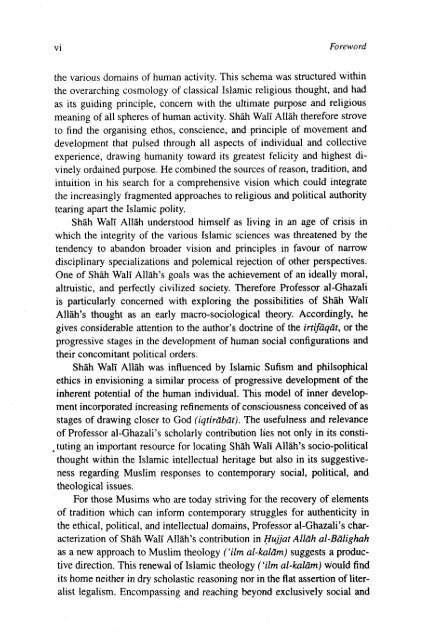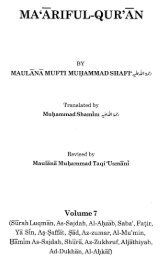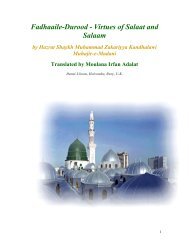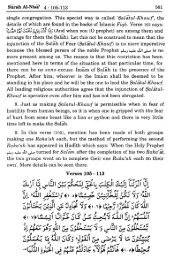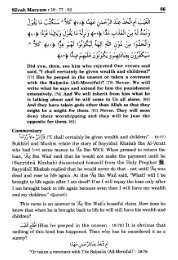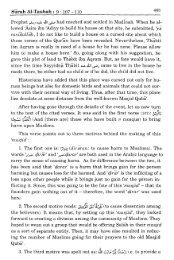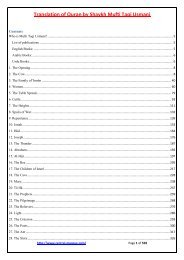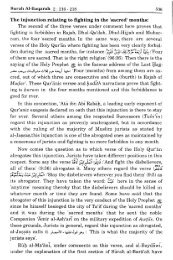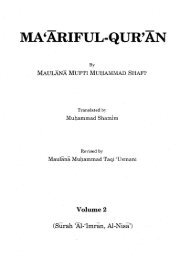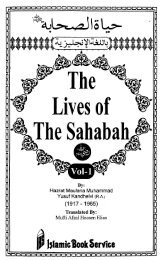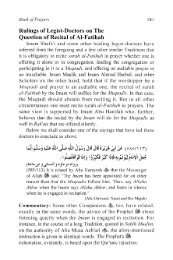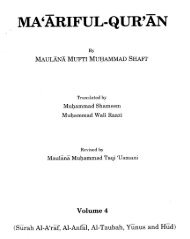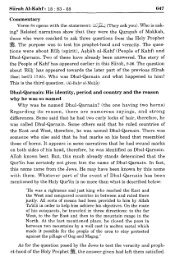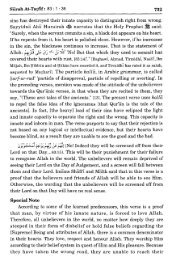Socio Political Thought Of Shah WaliAllah Rahmatullahi Alaihi
Socio Political Thought Of Shah WaliAllah Rahmatullahi Alaihi
Socio Political Thought Of Shah WaliAllah Rahmatullahi Alaihi
Create successful ePaper yourself
Turn your PDF publications into a flip-book with our unique Google optimized e-Paper software.
vi Foreword<br />
the various domains of human activity. This schema was structured within<br />
the overarching cosmology of classical Islamic religious thought, and had<br />
as its guiding principle, concern with the ultimate purpose and religious<br />
meaning of all spheres of human activity. Shiih Wali Allah therefore strove<br />
to find the organising ethos, conscience, and principle of movement and<br />
development that pulsed through all aspects of individual and collective<br />
experience, drawing humanity toward its greatest felicity and highest di-<br />
vinely ordained purpose. He combined the sources of reason, tradition, and<br />
intuition in his search for a comprehensive vision which could integrate<br />
the increasingly fragmented approaches to religious and political authority<br />
tearing apart the Islamic polity.<br />
<strong>Shah</strong> Wali Allah understood himself as living in an age of crisis in<br />
which the integrity of the various Islamic sciences was threatened by the<br />
tendency to abandon broader vision and principles in favour of narrow<br />
disciplinary specializations and polemical rejection of other perspectives.<br />
One of <strong>Shah</strong> Wali Allah's goals was the achievement of an ideally moral,<br />
altruistic, and perfectly civilized society. Therefore Professor al-Ghazali<br />
is particularly concerned with exploring the possibilities of Shih Wali<br />
Allah's thought as an early macro-sociological theory. Accordingly, he<br />
gives considerable attention to the author's doctrine of the irtgaqdt, or the<br />
progressive stages in the development of human social configurations and<br />
their concomitant political orders.<br />
<strong>Shah</strong> Wali Allah was influenced by Islamic Sufism and philsophical<br />
ethics in envisioning a similar process of progressive development of the<br />
inherent potential of the human individual. This model of inner develop-<br />
ment incorporated increasing refinements of consciousness conceived of as<br />
stages of drawing closer to God (iqtirdbht}. The usefulness and relevance<br />
of Professor al-Ghazali's scholarly contribution lies not only in its consti-<br />
tuting an important resource for locating <strong>Shah</strong> Wali Allah's socio-political<br />
thought within the Islamic intellectual heritage but also in its suggestive-<br />
ness regarding Muslim responses to contemporary social, political, and<br />
theological issues.<br />
For those Musims who are today striving for the recovery of elements<br />
of tradition which can inform contemporary struggles for authenticity in<br />
the ethical, political, and intellectual domains, Professor al-Ghazali's char-<br />
acterization of <strong>Shah</strong> Wali Allah's contribution in Hujjat Allah al-Bdlighuh<br />
as a new approach to Muslim theology ('ilm al-kaldm) suggests a produc-<br />
tive direction. This renewal of Islamic theology ('ilm al-kaldm) would find<br />
its home neither in dry scholastic reasoning nor in the flat assertion of liter-<br />
alist legalism. Encompassing and reaching beyond exclusively social and


